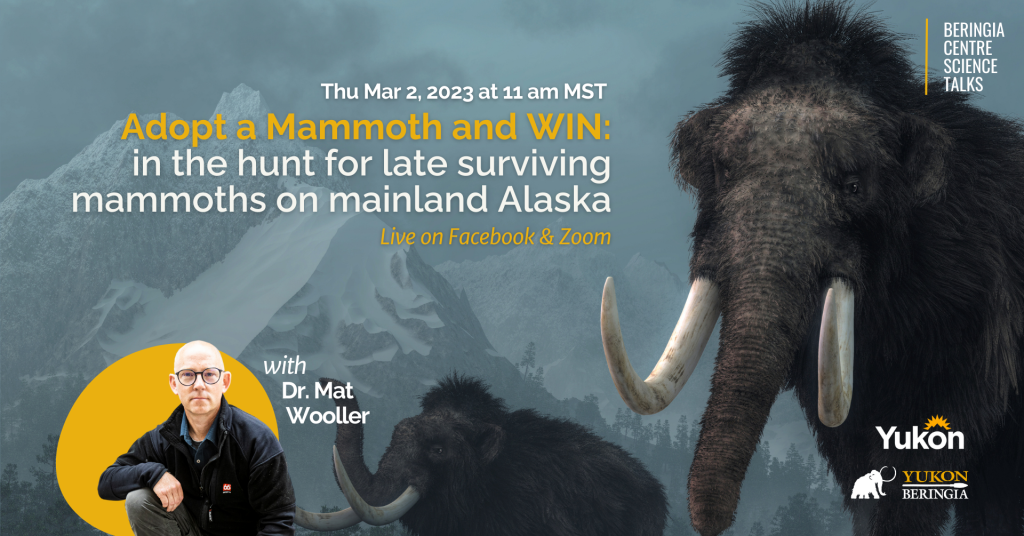posted February 27, 2023
BCST - Adopt a Mammoth and WIN: in the hunt for late surviving mammoths on mainland Alaska
Are you curious about archaeology, naturalscience, or palaeontology? You’re in luck! Beringia Centre Science Talks (#BCST) are back for a 4th season.
This week we're speaking with Dr. Mat Wooller from University of Alaska Fairbanks about woolly mammoths.
In this presentation, we'll learn all about the Adopt a Mammoth project. This project seeks to find the most recent mammoth fossil in mainland Alaska. : Ancient DNA from mammoths has recently been detected in surprisingly young (<10,000 years old) sediments in North West Canada and mainland Siberia. The remains of late surviving Alaskan mammoths and sedimentary mammoth DNA, dating to as young as about 5,600 years ago, have also been found on St. Paul Island in the Bering Sea. And yet the youngest reported fossil of a mammoth from mainland Alaska is greater than 10,000 years old. Part of the reason for the lack of evidence for late surviving mammoths is that only a very small fraction of the large collection of mammoth fossils from mainland Alaska has been dated - so far.
The Adopt a Mammoth project combines cutting edge research techniques, citizen-science and crowd funding to achieve the overarching goal of dating ALL of the 1500+ mammoth fossils from mainland Alaska in the University of Alaska Museum of the North. The person who adopts the most recent mammoth when all the specimens are dated will win a trophy!
Dr. Wooller will also briefly relay some of the new and exciting collaborative research that can be done once enough dated evidence from mammoths is gathered. This will include: 1) An update from very recent field work revisiting St. Paul Island, Alaska 2) Presenting brand new isotopic analyses from a female mammoth tusk aimed at inferring mammoth ecology and movement, and 3) Introducing new and cutting edge instrumentation established in the Alaska Stable Isotope Facility and funded by the Murdock Charitable Trust able to perform paleoproteomic analyses of fossils.
-----
Learn more about the adopt a mammoth project here.
Want to learn more about Dr. Wooller and his work? Check out his ResearchGate.

